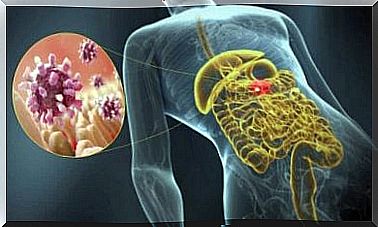Panic Attack: Something Nobody Will Understand

A panic attack can occur at any time. Unfortunately, panic attacks are not yet well known to the public and few people understand them. It only makes sufferers desperate and confused.
Panic attacks , also known as anxiety disorders, are described in the Diagnostic Manual of Mental Disorders (DSM-V). These disturbances may be experienced at one time or repeated over time.
Stressful situations, emotional trauma, or even living under pressure can trigger panic attacks.
During a panic attack, you feel as if you are dying and your heart is about to explode. It is a traumatic experience, especially if you don’t know what’s going on and the people around you don’t know how to help you.
People around you may react inappropriately by saying “nothing is happening”, “you panic without need”, “calm down, nothing to be nervous about”. This article is devoted to the phenomenon of panic attacks and how to deal with them if they occur.
Panic attack: when you feel your heart is about to explode
At the beginning it is worth remembering that anxiety is needed by people and it serves a specific purpose.
- Fear alerts us to danger and helps us to protect ourselves from it or escape it.
- A little anxiety has a stimulating effect on our body and can motivate us to be more resourceful in life.
- The problem comes when anxiety turns into panic.
- The brain interprets the increased level of anxiety as an immediate threat to our lives. To meet this threat, the brain releases a series of changes in physiological processes: accelerated heartbeat, high blood pressure, elevated levels of adrenaline …
While our body tells us to “run”, our mind repeats negative and catastrophic thoughts over and over again, which only make things worse.

Symptoms of a panic attack
Anxiety can be caused by many factors and personal situation.
Some people are afraid to fly, others suffer from agoraphobia, arachnophobia, or aquaphobia, which are the most common causes of a panic attack. Others may experience panic attacks because of their emotional trauma.
Many situations can cause anxiety, but the symptoms are always similar and easy to identify.
Emotional symptoms
- Anxiety or intense and uncontrolled fear.
- Difficulty concentrating.
- Feeling tense and very nervous.
- Fatalistic thinking: expecting the worst.
- Concentrating on negative things, panicking.
- One-track thinking: everything is wrong.
Physical symptoms
- Fast heartbeat.
- Increased blood pressure.
- Hyperventilation – a condition in which we start to breathe too quickly and deeply.
- Excessive sweating.
- Abdominal pain and nausea.
- Frequent urination or diarrhea.
- Heavy breathing and feeling like you’re going to have a heart attack.
- Body tremors and nervous tics.
- Tensed muscles.
- Headache.
- Extreme fatigue and weakness.

Panic attacks are associated with depression
If panic attacks occur frequently, it may be that the person suffering from them is struggling with hidden depression.
- Anxiety and depression often stem from the same root : helplessness. It happens when we lose control over what happens to us in stressful situations.
- Remember, however, that anxiety (panic attacks) and depression are separate diseases. On the other hand, there are times when anxiety may be a symptom of depression. To check it, we should go to the primary care physician to refer us to a specialist.
Coping with panic attacks
The first thing we need to do to deal with a panic attack is to deal with the emotional symptoms and try to view the threat, fear, or stress situation logically.
- Try to analyze everything that upsets you and rationalize each source of fear until you are no longer afraid of it.
How to help someone who is having a panic attack
You can help by understanding the person. The person suffering from the panic attack has not gone crazy. She needs your help and, above all, your composure and understanding.
- Ask her how she is doing and help her get to a place with access to fresh air.
- Loosen her clothes.
- If the person is breathing too fast and deeply, offer them a paper bag to breathe or ask them to breathe as if they were to blow out a candle (with tight lips).
- Keep repeating “this is not a heart attack.” “I’m here to help you, everything will be fine.” (Speak calmly and softly)
- Help her put one hand over her stomach and the other over her heart. This will make it easier for them to control their breathing.
If symptoms persist and your pulse is very high, call an ambulance service. This is especially important if a person suffers from cardiac disorders, diabetes or obesity.








